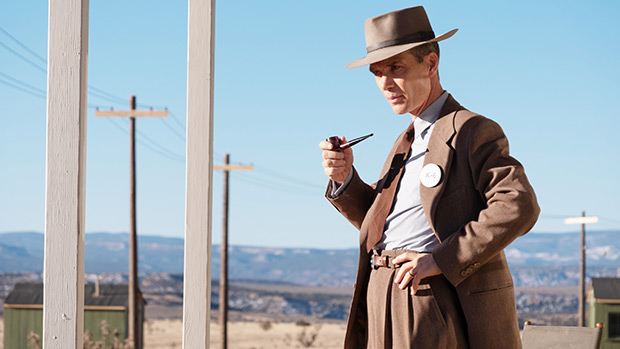‘Oppenheimer’ Ending Explained: Everything To Know About That Explosive Twist

Christopher Nolan’s ‘Oppenheimer’ wasn’t just a straight biopic. The film was a riveting thriller with a final act twist. So, how did it all end? Here’s what you need to know.
Oppenheimer isn’t just a story about the creation of the atomic bomb. Christopher Nolan’s American epic weaves his story through pivotal points of J. Robert Oppenheimer’s life. Years after he’s become the “father of the atomic bomb,” Robert’s power as the leading expert in atomic energy is threatened when his security clearance is up for review. So, how does Oppenheimer end? What’s the twist in the final act?
There’s the pivotal scene when Robert speaks with Albert Einstein at Princeton in 1947, shown through Lewis Strauss’ point of view. Robert and Einstein share a few words before Einstein walks away from Robert and doesn’t say a word to Strauss, who was the head of the Atomic Energy Commission at the time.
This moment seems harmless, but it has lasting implications. Strauss interprets Einstein’s indifference toward him as a slight and believes Robert poisoned Einstein against him. This sets in motion a chain of events rooted in revenge.
As Robert is fighting to not have his security clearance revoked, Strauss is having his Senate hearings in order to secure his spot in Eisenhower’s cabinet. In a shocking twist, Strauss eventually reveals that he’s the one behind Robert’s security clearance being called into question. After the Einstein incident and a very public humiliation at a hearing years prior, Strauss is dead-set on destroying Robert. In the end, he wins because Robert’s security clearance is revoked. Robert is, for all intents and purposes, silenced.
But Strauss doesn’t account for one testimony during his Senate hearings. Physicist David Hill speaks out against Strauss, and Strauss is unable to secure the votes he needs to become a member of Eisenhower’s cabinet. (One senator who voted against him is none other than John F. Kennedy.)
Oppenheimer’s final scene brings us back to 1947 when Robert and Einstein cross paths. Turns out, Strauss’ name never came up in their brief talk. Robert and Einstein actually spoke about a discussion they had years earlier. Robert had asked Einstein to take a look at calculations that proposed a nuclear explosion could start a chain reaction that would set fire to the atmosphere and destroy the world.
While those calculations turned out to be wrong, Robert wonders if he set off a chain reaction anyway. After the success of the Trinity test, the atomic bomb was quickly used in Hiroshima and Nagasaki, triggering an arms race. Robert has been pondering if his creation has made him the “destroyer of worlds” after all. This confession is what leads Einstein to walk away.
However, Einstein has some final words for Robert. He alludes that Robert will suffer consequences for his achievements, but eventually, he’ll be rewarded. He warns Robert, “It won’t be for you. It will be for them.” Einstein’s words echo in Robert’s mind when he’s later given an award by President Lyndon B. Johnson.